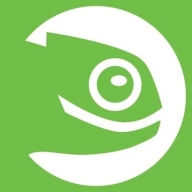

Oracle Solaris and openSUSE Leap are two distinct operating systems competing in the enterprise and development realm. Oracle Solaris seems to have the upper hand in support and stability, making it highly valued by enterprise users, while openSUSE Leap is preferred for its rich features and flexibility.
Features: Oracle Solaris is noted for advanced security features, scalability, and enterprise performance. openSUSE Leap provides a robust set of development tools, extensive hardware compatibility, and a versatile environment that appeals to developers and system administrators.
Room for Improvement: Oracle Solaris users often cite the need for more frequent updates and better hardware support. In contrast, openSUSE Leap users prioritize improvements in support documentation, system update processes, and more comprehensive user resources.
Ease of Deployment and Customer Service: Oracle Solaris is praised for straightforward deployment in enterprise settings with strong customer support, and a clear setup process. openSUSE Leap offers a streamlined deployment process, supported by a comprehensive community and documentation, though Oracle Solaris offers a more consistent customer service experience.
Pricing and ROI: Oracle Solaris tends to be more costly in setup and ongoing licensing fees, but users report a high ROI due to reliability in mission-critical applications. openSUSE Leap, being open-source, offers lower initial costs and no licensing fees, leading to favorable ROI especially for small to medium-sized businesses.

openSUSE Leap is a brand new way of building openSUSE and is new type of hybrid Linux distribution. Leap uses source from SUSE Linux Enterprise (SLE), which gives Leap a level of stability unmatched by other Linux distributions, and combines that with community developments to give users, developers and sysadmins the best stable Linux experience available. Contributor and enterprise efforts for Leap bridge a gap between matured packages and newer packages found in openSUSE’s other distribution Tumbleweed.
Oracle Solaris is a trusted business platform that provides consistent compatibility, is simple to use, is always secure, and is designed to help you run your modern and legacy enterprise applications. The solution is the most recommended enterprise operating system for Oracle Database and Java applications and is engineered for large-scale enterprise deployments.
Oracle Solaris Features
Oracle Solaris has many valuable key features. Some of the most useful ones include:
Oracle Solaris Benefits
There are many benefits to implementing Oracle Solaris. Some of the biggest advantages the solution offers include:
Reviews from Real Users
Below are some reviews and helpful feedback written by PeerSpot users currently using the Oracle Solaris solution.
A CEO at a computer software company says, “The most valuable feature is virtualization. They have attained virtualization and it's quite simple to create the Oracle Solaris zones. The solution is quite powerful. Oracle Solaris is great due to the fact that it actually is meant for high-end servers. The high availability is great. You can clone and you can do quite a number of things with them. There's also the ZFS File system which is very good. Is one of the best file systems that there is.”
Diego A., Oracle ACE - Specialized in Systems Technologies at Telecom Argentina, mentions, “The most valuable features for me are virtualization (Containers, Zones, Security, PDOM's, LDOM's) and Performance, ZFS, Debugging with Dtrace.”
A Service Manager at a tech services company expresses that the solution is “Stable, scalable, and has easy installation.”
PeerSpot user Marcel H., Oracle ACE Director "Solaris," CEO, Enterprise Consultant at JomaSoft, explains, “Solaris includes two virtualization solutions: LDoms for SPARC and Solaris Zones. Both solutions can be combined to create private clouds. Solaris Zones is ideal to separate applications and to migrate from older to current hardware. LDoms is very efficient because it uses the hardware hypervisor of the SPARC servers. Both technologies increase Security, because they separate the applications from each other. Using the Security Compliance Framework we are sure the systems are set up properly.”
Shafiq K., Senior Manager IT Operations at a financial services firm, states, “The reliability of the solution is excellent. The security has been very good overall. We've found the solution to have good availability. The backup capabilities are quite good. The solution has proven to be quite stable so far. The product can scale. The solution is 100% free to use. It doesn't cost a company anything as it's embedded in the hardware.”
We monitor all Operating Systems (OS) for Business reviews to prevent fraudulent reviews and keep review quality high. We do not post reviews by company employees or direct competitors. We validate each review for authenticity via cross-reference with LinkedIn, and personal follow-up with the reviewer when necessary.